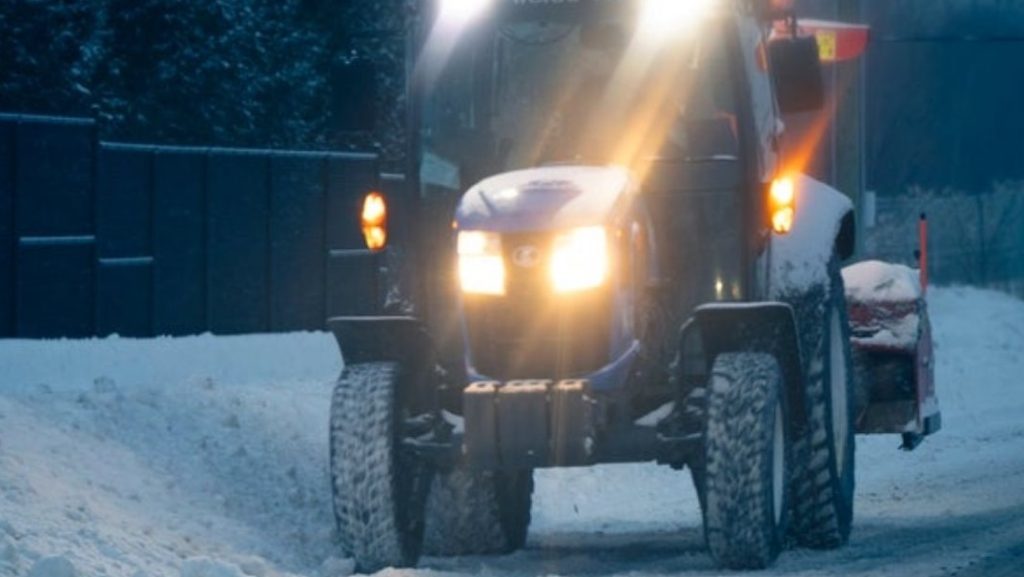Foundation working to bring filters for clean water across Ontario reserves
Posted Sep 1, 2022 11:45:00 PM.
Water is an extremely important part of Indigenous culture which makes the fact that 27 Indigenous communities across Canada are living with a boil water advisory while countless others struggle for access to clean water that much more devastating.
“Water is very important to Indigenous people,” Beverley Maracle, a resident of Six Nations of the Grand River, told CityNews. “Water is medicine to Indigenous people and we need water for life. So water is life.”
That’s why the Dreamcatcher Foundation, in partnership with Healthy First Nations, is working to expand access to clean water across Ontario reserves.
They are going house-by-house on Six Nations of the Grand River, where more than 80 per cent of residents don’t have access to clean drinking water, installing temporary water filters as an interim solution.
Community residents are waiting to be connected to a multi-million dollar water treatment plant that currently only services 17 per cent of the reserve.
The Dreamcatcher foundation was started in 2004 with the goal of providing life-changing opportunities for Indigenous Peoples.
Stevie Salas, the co-founder of Seeing Red Six Nations and a board member at the Dreamcatcher Foundation tells CityNews how he first thought of the idea for water filters.
“So I flew to Fiji, I went in there and I saw these little filters and I was watched little kids literally get healthy in a matter of days purely by just having clean water,” said Salas. “And I came back after Australia to Canada to Six Nations … and I get this idea, this was real, it was basic and it was really affordable so then Bryan said, ‘Okay, we’ll take it from here.’ And that’s when Bryan got involved and started plugging it all in.”
Bryan Porter is also a board member of the Dreamcatcher Foundation and a Visionary Leader and Shakohen:te’s from Six Nations.
“To me, we’re working in conjunction with what the [federal government] has planned and what they’ve already done, and it’s a way to get us all the way there. And for me personally, I mean, it’s important because I grew up without running water at all,” Porter told CityNews.
‘There are no government dollars involved, no grants involved. This is all concerned citizens and companies who exist currently on the territory,” added Porter.
The federal government contributed $26 million to build the water treatment plant on the reserve, but Six Nations Chief Mark Hill estimates it will cost close to $200 million to connect to the rest of the reserve and they are relying on government subsidies to hopefully complete the connection.
Much of the community uses cisterns, which are underground containers that can be filled with water that’s brought in by truck. Other residents receive their water from wells.
However, both sources are open to contamination, so those residents often buy bottled water for consumption. Hill estimates that households spend an average of $2,500 on water a year.
This current way of life is the reason behind this initiative.
The temporary water filters attach to either a tap or a bucket and provide clean drinking water for approximately 10 years as long as it’s cleaned daily.
“So the filter is very similar to how a dialysis machine would work. There are membranes inside that capture a specific micron level of that. Everything that passes through gets captured by this filter, and it’s a matter of just turning it and reversing flow to clean that back out,” said Porter. “And from Stevie’s experience in Fiji, we understand there are, right now, filters that are operating for 13 years.”
And the solution is cheap as well. “You could fix your home for $40. You can fix your water for 13 years for $40 right now,” shared Porter.
He said obviously it’s not an ideal situation but it’s a temporary solution. “It’s not the most ideal situation. But then instead of waiting around for the government to come and fix the situation because it could take ten or 20 years.”
Currently, Porter says they are close to contacting everyone who may need help in Six Nations. The team’s hope is to expand their work across Ontario, once Six Nations of the Grand River is complete.
“I think the in terms of leading the change, it does have to come from everyone. Our elected officials, our traditional leaders, our youth,” said Porter “We’re sitting outside of the future here … we do have access to the technology that allows us to consume it. And if we can have the plant here, expand it to cover off all homes on the territory, then that would be a good future where everyone has testable and quantifiably clean water to consume and to raise their children.”
Porter reiterated the importance of water in Indigenous culture. “I would say we would consider water to be a living organism. It has memory and it has. It guides so much of everything else that we do,” said Porter.
“We live along the Grande River. So it’s always been a part of our day to day lives. And for us to not to be able to go to consume that river, which we consider our own, it’s tough.”
Porter adds there are many that have come before them to try and find a solution, but they were lucky to find some answers.
“There’s so many that deserve the credit. We were just very fortunate that we were able to find a solution that was easily implemented and we were able to find good people to support us in that.”
In a new series, CityNews will be talking to Six Nations community leaders, residents and water keeper Autumn Peltier about efforts to get every resident access to clean water and why this issue is proving so hard to solve, Canada-wide.








